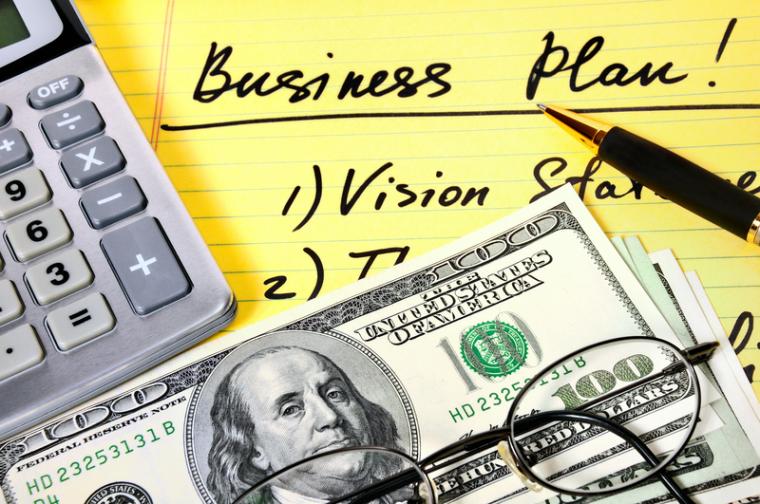

Many approach negotiations with dread. This can be especially true during facility vendor negotiations where host cities, clients and facilities each have their own needs and expectations for the sporting event. But with a few simple steps and considerations, you can truly create a win-win-win situation in your negotiations.
Understanding Your Clients
One of the most important parts of the negotiation process occurs before you even reach out to the facility. Your negotiations work begins with enhancing your understanding of the client’s needs before approaching a facility.
Sit down together, asking and answering key questions to ensure a mutually beneficial relationship and digging deeper than what you’ll find in a request for proposal. Discuss the event’s history, expected participants and spectators as well as demographics. Will participants be traveling to the event with families, individually or a mix of both? Will there be a local component where host city residents can purchase tickets? Are participants in the city’s drive market or using flights and other transportation modes to attend the event?
Get an idea of the room block, rate range and potential for growth. Discuss whether there is any flexibility with dates and/or flexibility with patterns. Date flexibility can mean the event must take place on a weekday, but the exact weekday dates can change. Flexibility in terms of patterns can mean a client’s event is able to take place any day of the week, but the actual date range remains the same.
Connect with Prior Host Cities
Continue your client research by seeking feedback from the client’s previous host cities. Utilize those host cities’ convention and visitor’s bureaus (CVBs)/destination marketing organizations (DMOs) as well as cities’ sports commissions. This will not only give you good feedback on the local impact and experiences, but also a check that the client is being completely clear and honest about needs and expectations.
Obtain information about room night pick-up, food and beverage revenue and the activity in the area from the city’s perspective. Ask the host cities’ thoughts on the client’s working relationship with the CVB/DMO/sports commission. Was the client clear and upfront about needs, expectations and any issues that arose? Also ask about the working relationship with all facilities involved. Did the client provide timely requests or at least acknowledge and apologize for last-minute changes?
This will all provide good background when you approach facilities. Especially in instances of good feedback, facilities may be more willing to work with the client.
Understanding Your Facilities
A CVB, DMO or sports commission should have an understanding of local facilities. Developing working relationships with facilities’ staff and leadership opens the door for you to approach facilities with requests from a place of trust and true awareness of the facility’s own needs.
Educate facility staff on your role as the CVB/DMO/sports commission. Continually be in contact with your top facilities to make sure they understand you are an extension of their sales team and an advocate for their mission. Help them know and trust that your role is not to take away from them, but to be an extension of them. Having that background will ensure facilities’ support of your event hosting and trust in your judgement.
As you sit down with your facility to determine a fit for the client’s event, be upfront with needs and expectations of the client in addition to sharing how this event can benefit the facility. Those benefits can be monetary as well as those more intangible benefits such as prestige and reputation. This is where you share the feedback you’ve gathered from past host cities, focusing especially on positive impacts seen from this event.
Additionally, consider approaches that can make the client happy while also making the event worthwhile for the facility. For example, does the client anticipate a concessions-heavy event? That could drive down rental costs for the client while event participants still contribute to revenue for the facility.
Balancing Client and Facility Needs
Once you’ve created an understanding of the client’s needs and an understanding of the facility’s needs, it’s now time to bring the two sides together. Balancing the relationship with client needs along with facility needs will truly create that win-win-win situation, with both sides – the event owner and the CVB/DMO/sports commission – seeing benefits as well.
As we continue to work our way out of the COVID-19 pandemic, every city, facility and event organizer has their own practices and protocols. Necessarily, there will be instances when those practices and protocols do not match. Referring back to your understanding of the client’s needs and your understanding of the facility’s needs, bring the two together to ensure an agreed upon approach that both parties feel comfortable with. For example, if the facility does not have a mask policy in place and the client wants one, there should be no issue with the facility complying with that request.
COVID-19 safety practices are still important to ensure client confidence in using recommended facilities and CVB/DMO/sports commission representatives should make that clear to facilities and clients. Share all cleaning and safety protocols and even consider consulting your local health department for guidance and recommendations. SafeSport Compliance as well as Diversity & Inclusion Commitments offer another way to protect athletes physically and emotionally.
Remember, there is no such thing as overcommunication in facility negotiations. Stay connected with both client and facility, and ensure they remain connected with each other from negotiation to post-event debrief.
Get Creative
Though there are some standard best practices and protocols that facilities and clients will need to adhere to during negotiations, CVB/DMO/sports commission representatives can encourage the facility and the client to think outside the box in order to meet various event needs.
Cost effectiveness is one area that can benefit from a bit of creativity. Look for other potential revenue streams to accommodate lower rent from the facilities such as rebates, community partner donations and sponsorships. Think of potential cost-effective add-ons that have a higher value to the client and/or facility such as CVB/DMO/sports commission event services and marketing teams as well as special amenities for VIP clients.
Facility use is another area to think outside of the box during negotiations. Are there opportunities for a facility to be used in a different, less traditional way? Here in Milwaukee, we have a knack for renovating and reusing spaces. We have a former brewhouse that is now a hotel. Our historical society is housed in a former bank. Fencing tournaments have taken place in one of our convention center ballrooms for multiple strips for competition. Fiserv Forum, where the 2021 NBA Champion Milwaukee Bucks play, turned into a gymnastics venue. Work with facilities to determine the capabilities in their spaces and see if a new type of sporting event may be a nontraditional yet successful fit.
Ensure that the facility is comfortable with and capable of accommodating unique, local activations that can enhance attendee experience and maybe even the event’s profile. The CVB/DMO/sports commission may host a VIP tent at the event or work with the facility to bring in food trucks for unique dining. In Milwaukee, the Racing Sausages from Milwaukee Brewers baseball games can run to the event for photo opportunities with athletes and spectators. Harley-Davidson Motor Company provides motorcycles at events for photos as well as a jumpstart for guests to rev a Harley engine just outside the venue.
Facility negotiations are not to be approached with dread, but with excitement and curiosity. With some understanding, balance, communication and creativity, the possibilities for a successful event are truly endless. SDM

